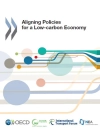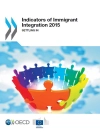The growing number of states with weak capacity to carry out basic governance functions is leading to unacceptable levels of human suffering. Using Ethiopia as a case study, this book acknowledges the multidimensional nature of state fragility and highlights the non-political factors that drive it.
The first part uses institutional theory to explore how weak institutions become a source of state fragility by undermining social cohesion and the broader economic progress of countries. Part two examines the role of entrepreneurship and industrial policy as a means of creating and sustaining economic and political stability, trade policy as a means of increasing incomes and easing tensions, and technology policy as a means of engaging people in entrepreneurship and innovation. The final chapter provides lessons that fragile nations can learn from successful developing countries in Southeast Asia and Latin America.
This book will appeal to researchers interested in international business, economic and business policy, international trade, and emerging markets who seek to understand how fragile states can promote sustainable peace and development.
Mục lục
Introduction.- PART I: DRIVERS OF STATE FRAGILITY.- Chapter 1: State fragility (SF) and human development.- Chapter 2: National constitutions as a source of state fragility.- Chapter 3: Institutions and state fragility.- PART 2: ECONOMIC GROWTH AND BREAKING OUT OF FRAGILITY.- Chapter 4: State fragility and economic performance in Ethiopia.- Chapter 5: Industrialization and Industrial policy in Ethiopia.- Chapter 6: Entrepreneurship, domestic private investment and services.- Chapter 7: Promoting international trade.- Chapter 8: State fragility, education and technology Policy.- Chapter 9. Lessons from successful developing countries.- Conclusion.
Giới thiệu về tác giả
Belay Seyoum is Professor of International Business in the Huizenga School of Business at Nova Southeastern University, USA. Dr. Seyoum has published three books as well as numerous articles on international business in several prestigious academic journals such as the International Business Review, Journal of World Business, Journal of Economic Studies, and the International Trade Journal. He is a graduate of Mc Gill University, Canada. He is the author of the widely used textbook on export-import trade.












